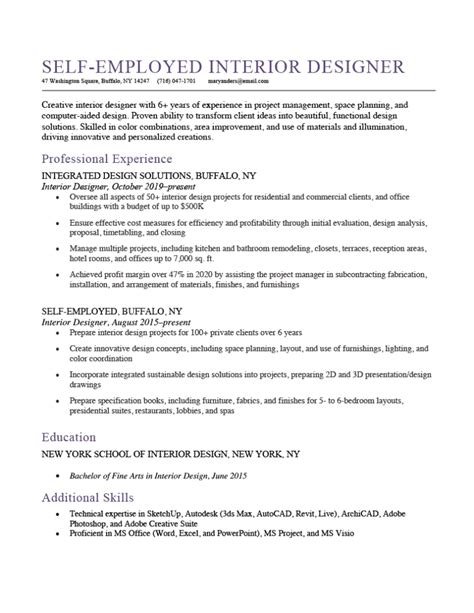Learn how to effectively showcase your self-employed work experience and skills to impress potential employers. Format your experience and highlight your achievements for maximum impact.Are you self-employed and wondering how to effectively showcase your experience on your resume? Listing self-employment on a resume can be a bit tricky, but with the right approach, you can impress potential employers with your unique skills and achievements. In this blog post, we will discuss the best strategies for including self-employment on your resume.
First, we’ll explore the importance of understanding self-employed work and how to effectively convey its value to employers. Then, we’ll delve into showcasing your skills and achievements gained from your self-employed experience, as well as how to format this information on your resume. Finally, we’ll discuss ways to impress employers by highlighting the benefits of your self-employed experience. Whether you’re a freelancer, consultant, or business owner, this post will provide you with the tools and insights you need to confidently list your self-employed work on your resume.
Understanding Self-Employed Work
Self-employment is a professional path that many individuals choose to pursue for a variety of reasons. Whether it’s the freedom to set your own schedule, the ability to work on projects that truly resonate with you, or simply the desire to be your own boss, self-employment offers a unique set of opportunities and challenges. It’s important to understand that self-employed work requires a high level of self-discipline and motivation. Without the structure of a traditional office environment, self-employed individuals must be able to manage their time effectively and stay on top of their responsibilities without supervision.
One of the key aspects of self-employment is the opportunity to showcase your skills and achievements in a way that highlights your unique strengths. This can be particularly valuable when seeking new opportunities, as it allows you to demonstrate the value you bring to the table as a self-employed professional. Whether it’s through a portfolio of work, client testimonials, or quantifiable results, showcasing your achievements can set you apart from the competition and impress potential employers or clients.
Formatting self-employed experience on a resume or portfolio is another important aspect of understanding self-employed work. It’s essential to clearly communicate the nature of your work, the specific skills you’ve developed, and the impact you’ve had in your self-employed role. This may involve providing a brief overview of your business, detailing the types of projects you’ve worked on, and quantifying your successes in a way that resonates with your target audience.
Showcasing Skills and Achievements
How to List Self Employed on Resume
When you are self-employed, it can be challenging to figure out how to showcase your skills and achievements on your resume. Many employers may not be familiar with the nature of self-employment, so it’s important to clearly communicate the value and expertise you have gained from your entrepreneurial experience.
One effective way to showcase your skills and achievements is to focus on specific projects or clients you have worked with. Highlight the successful outcomes or results you have achieved, and use numbers or data to quantify your accomplishments. This can help employers understand the impact of your work and the value you can bring to their organization.
Additionally, don’t be afraid to emphasize the transferable skills you have developed as a self-employed individual. These may include time management, problem-solving, communication, and leadership abilities. By clearly articulating these skills and achievements, you can demonstrate to potential employers how your self-employment experience has prepared you for success in a traditional work environment.
Formatting Self-Employed Experience
Listing self-employed experience on your resume can be a great way to showcase your skills and achievements to potential employers. When formatting your self-employed experience, it’s important to make it clear and easily understandable for the reader. One way to do this is by using a consistent format throughout your resume, including your self-employed experience section. You can use headings, bullet points, and bold text to highlight the key details of your self-employment.
Another key aspect of formatting self-employed experience is to focus on your accomplishments and skills gained during this time. Use strong keywords and action verbs to describe your responsibilities and achievements. This will help to demonstrate the value that your self-employed experience can bring to a potential employer. You can also include specific examples or projects that showcase your skills and expertise in your industry.
When listing your self-employed experience on your resume, it’s important to be honest and transparent about your work history. Make sure to include the dates of your self-employment, the name of your business or freelance work, and a brief description of your responsibilities. You can also include any relevant certifications, achievements, or awards that you earned during your time as a self-employed professional.
Impress Employers with Self-Employed Experience
Impress Employers with Self-Employed Experience
When it comes to impressing potential employers with your self-employed experience, it’s important to showcase your skills and achievements in a clear and impactful way. One of the most effective ways to do this is by formatting your self-employed experience in a professional manner that highlights your strengths and accomplishments.
Start by listing your self-employed experience as you would any other job on your resume, including the name of your business, your title or role, and the dates of your experience. Use keywords that emphasize your skills and achievements, such as entrepreneurial or self-motivated, to catch the attention of potential employers.
Additionally, be sure to provide specific examples of projects or clients that demonstrate the impact of your self-employed work. Quantify your accomplishments whenever possible, using numbers and metrics to provide concrete evidence of your success. By showcasing the value of your self-employed experience in this way, you can effectively impress employers and stand out as a strong candidate for the job.
